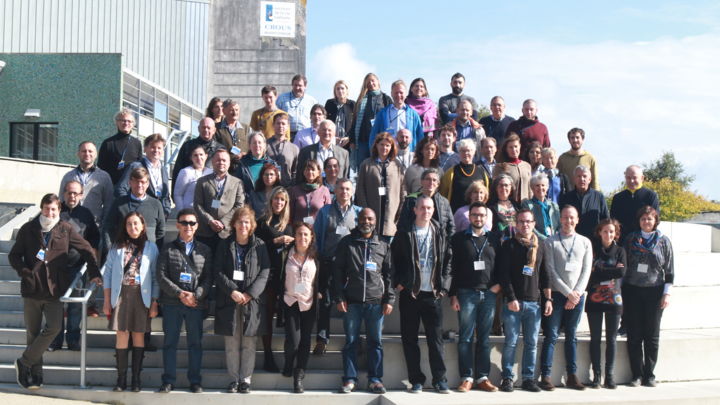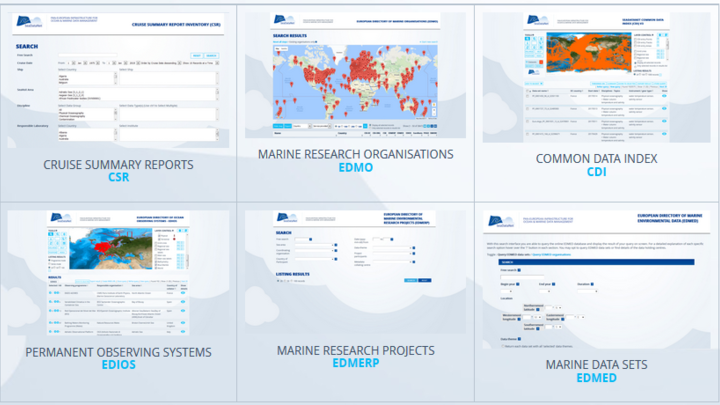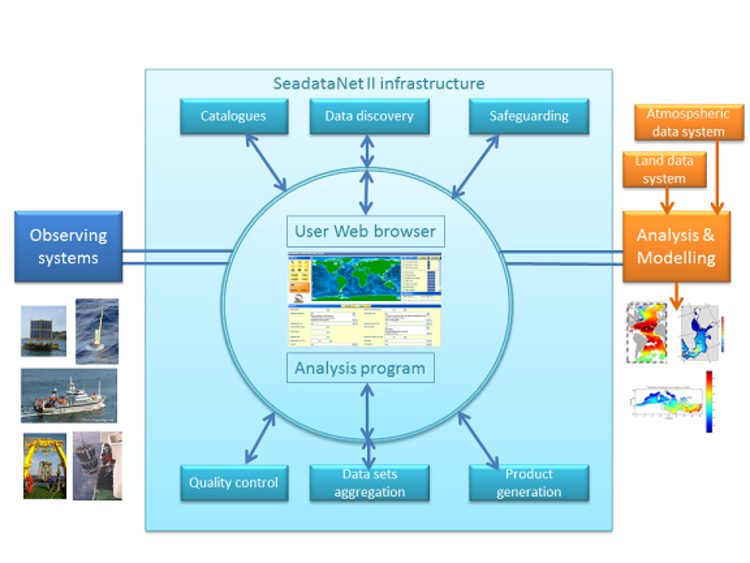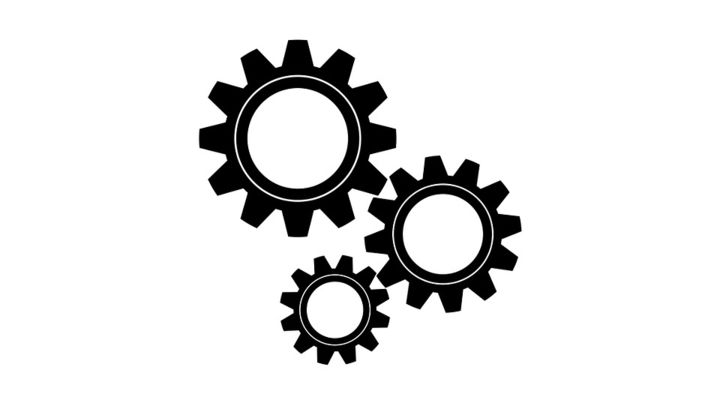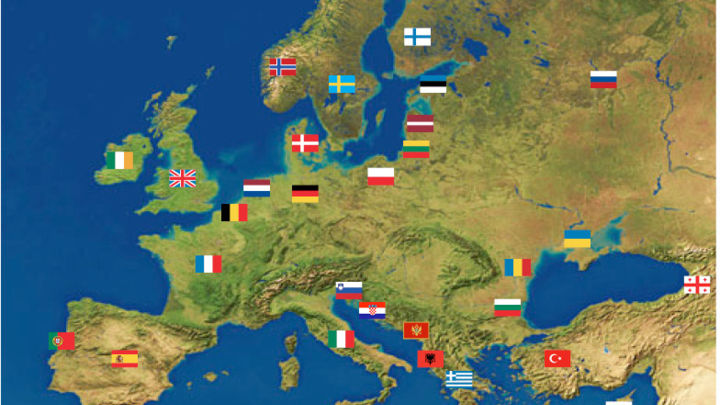SeaDataNet 2 (2011 - 2015)
Access to marine data is of vital importance for marine research and a key issue for various studies, from the climate change prediction to off shore engineering.
The marine observing system is highly fragmented: in the countries bordering the European seas of the partnership, more than 600 scientific data collecting laboratories from governmental organisations and private industry have been identified. They collect data by using various sensors on board of research vessels, submarines, fixed and drifting platforms, airplanes and satellites, to measure physical, geophysical, geological, biological and chemical parameters, biological species etc. The collected data are neither easily accessible, nor standardized. They are not always validated and their security and availability have to be insured in the future.
Therefore SeaDataNet is a standardized system for managing the large and diverse data sets collected by the oceanographic fleets and the automatic observation systems. The SeaDataNet infrastructure network and enhance the currently existing infrastructures, which are the national oceanographic data centres of 35 countries, active in data collection. The networking of these professional data centres, in a unique virtual data management system provide integrated data sets of standardized quality on-line. As a research infrastructure, SeaDataNet contributes to build research excellence in Europe.
SeaDataNet infrastructure was implemented during the first phase of SeaDataNet - SeaDataNet project, grant agreement 026212 was an Integrated Infrastructure Initiative of the EU Sixth Framework.
The second phase of SeaDataNet (SeaDataNet 2 project, grant agreement 283607, started on October 1st, 2011 for a duration of 4 years) aims to upgrade the present SeaDataNet infrastructure into an operationally robust and state-of-the-art Pan-European infrastructure for providing up-to-date and high quality access to ocean and marine metadata, data and data products by :
- setting, adopting and promoting common data management standards
- realizing technical and semantic interoperability with other relevant data management systems and initiatives on behalf of science, environmental management, policy making, and economy

